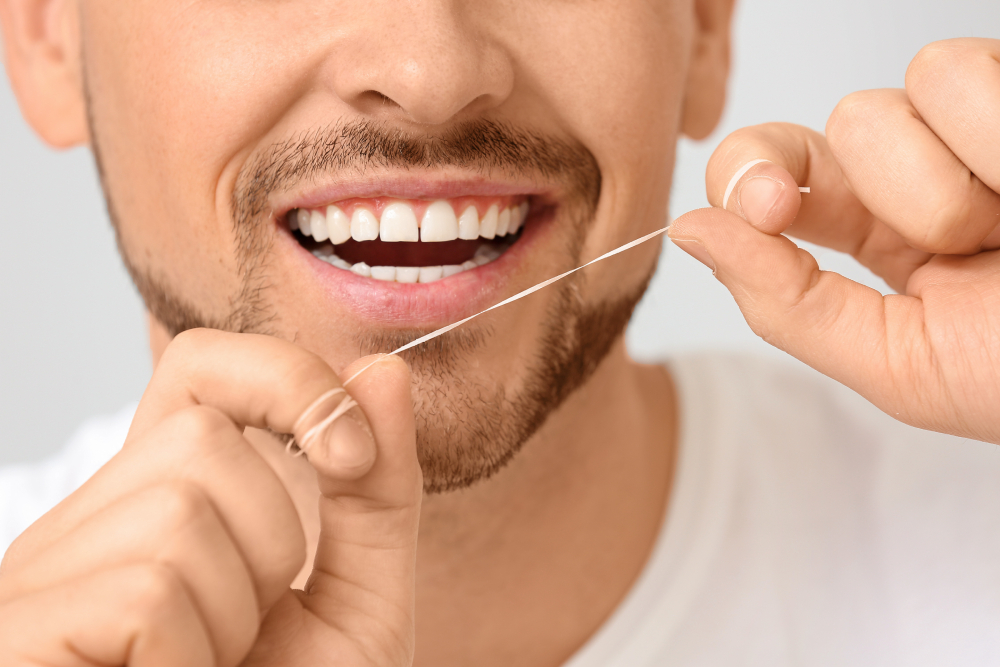Do I Need to Floss Every Day?

Most people asked will agree that regular tooth brushing with fluoride toothpaste is necessary. The same can’t be said about flossing, with many people feeling the process doesn’t make much of a difference in their oral health. However, dentists will tell you that one look in a person’s mouth will reveal whether they floss or not. So should you floss every day, and how exactly would that help?
Why Is Flossing Necessary?
However well you brush your teeth, food particles and plaque can get trapped between them, providing the perfect environment for bacteria to flourish. Flossing helps reach those hard-to-clean areas, removing plaque and preventing it from hardening to tartar.
What Are the Benefits of Flossing?
The following are some of the many benefits of flossing:
Flossing Lowers the Risk of Cavities: If you don’t clean out trapped particles of food and plaque from between your teeth, you’re at risk of developing tooth decay and cavities. Untreated tooth decay can progress and cause a host of oral health complications.
Flossing Lowers the Risk of Periodontal (Gum Disease): If you don’t remove plaque from between your teeth, the gums will start getting inflamed, red, and irritated. That indicates the first stage of gum disease, a condition known as gingivitis. If not treated, gingivitis may advance to a more serious condition called periodontitis. The infection and inflammation may destroy the bone and connective tissues holding the teeth in place, causing loose teeth and even tooth loss.
Flossing Contributes to Your Overall Health: Gum disease resulting from lack of flossing has been shown to increase the risk of conditions such as heart disease, stroke, high blood pressure, and rheumatoid arthritis. It can also make other pre-existing conditions like diabetes worse. Moreover, harmful oral bacteria can enter your bloodstream, causing serious and sometimes life-threatening infections.
Flossing Prevents Bad Breath (Halitosis): Flossing helps remove food particles, plaque, and odor-causing bacteria from between the teeth, lowering the risk of unpleasant breath.
How Should You Floss Your Teeth?
Flossing well is more important than flossing often, so rather than flossing several times a day, we recommend doing so once but taking the time to do it thoroughly.
Here is a guide to help you floss your teeth properly:
- Start with a floss strand about 18 to 20 inches in length.
- Wrap each end of the floss around your middle fingers, leaving about two inches in between.
- Hold the floss firmly between your index fingers and thumbs.
- Slide the floss between your teeth and move it up and down, making sure it makes contact with the sides of each tooth.
- As the dental floss touches the gums, curve it into a “C” shape and gently slide it between the gums and your teeth.
- Use a clean, fresh section of floss as you move from one tooth to the next.
- Rinse with water or mouthwash to remove any loose food particles or plaque.
Quality Dental Care Near Me
Visit High Street Dentistry in Jefferson City, MO, to learn more about good oral hygiene for long-term healthy smiles. Our team is pleased to offer quality preventive dentistry services and state-of-the-art restorative care to keep your smile in tip-top shape. Call us to schedule your appointment today!
